Infinite songwriting wisdom: at the end of 2017 we highlighted the brilliant Laetitia Tamko AKA Vagabon as a breakthrough artist
Having released her brilliant debut album, Infinite Worlds to widespread acclaim earlier that year, Vagabon became one of the breakthrough artists of 2017. It’s no surprise either that Vagabon achieved such success. Her wonderful brand of bedroom indie-rock/folk, laced with electronic tinges, marked her as one of the most exciting artists to emerge from the scene in recent years.
As an artist who writes the parts of each instrument to feature in her music, Vagabon is a writer who truly takes responsibility for all parts of the songwriting process. And it shows. Her music is uniquely personal, tender, and refined.
We caught up with Vagabon during her European tour and asked her how her writing is affected by taking such an involved role in the songwriting process.
You were last in Bristol for Dot-to-Dot festival?
“Yeah, that was the first time that I was in the UK.”
How was it?
“It was amazing, I think that it spoiled me! It spoiled me for sure. People always come here, all of my friends and the musicians I know come here!”
How is your tour going?
“The tour is good. It’s stressful, I’m on month eight of touring this record. At this point you start to feel it [in your bones] and the things you have energy for are few and far between almost.”
Are all the things that used to be exciting now sort of a drag?
“No. That part, the things that are exciting are still exciting. I think what it is is that you’re too tired or stressed to enjoy a lot of things. And I’m all about the small wins – there’s my favourite flavour in the green room, that’s a win. So those things start being like, ‘Oh, yay!’ It all starts to become like an unwatered plant!”
The small wins are important, though, to keep you going. Mark Twain said, ‘start with the worst thing and then everything gets easier from there,’ but perhaps the opposite is true…
“That’s funny. I think I started with the most difficult thing, but then I’m also still finding difficult things. Maybe I should write a rebuttal to that theory.”
Do you find the time to write when you’re on tour?
“I try to. I’ve been playing some new songs on the US tour that I just got off and then went directly into this one. So, I’m gradually doing it but I’m also definitely looking forward to sitting down and getting reacquainted with the way that I write music, which is not in a van, and having time to let it marinate.”
What’s the process that you go through with writing: do you have a set way of going about things, or do you do it in a different way each time?
“I think that it varies. I only just released my first record this year. So I think that with time, with growth, and with changing, that there’s so much room for growth that I can go through. So nothing is a hard yes and nothing is a hard no.
“Right now I am writing very little because I am always in a van and am starting to get acclimated to writing in a van, and the kind of music that you can write in a van is very specific.
“So I think that it’s kind of an adjustment period. I know for next year that I need to have time off and I am a person that’s really into nesting, and self-care. I think that once I start to feel shaky that it’s time for me to sit down.”
How did you write Minneapolis?
“That’s actually the funniest story. I was writing a lot of songs in my bedroom and the songs on the record are ones that were conceived in my bedroom late at night. And that kind of didn’t start to show until I started to rearrange them, until I added drums and a cool bassline.
“Minneapolis is one of the few songs that I didn’t write in my bedroom, I wrote it in my practice studio with amps going and a very defined tone. So those things didn’t come after, like all the other songs.”
In what way did that influence the sound of the song?
“I’m really particular about tone, and volume, and effects, right down to my live band. Like my live bassist, before she got hired she had a very specific tone. And I think that one of the perks that I have of knowing all of the instrument, of having played all of them, is that I know exactly what I want. That’s another reason that I hired musicians rather than being in a band, because I just already know how I want it to sound.
“So Minneapolis is the one song where, there’s this incredibly skilled bass player in New York and she played bass on this track, and I don’t let anyone touch my songs! But it just gravitated so much and even the scary guitar line where it stops and then counts to six.
“The setting just made it a different song. Like I had access to a different room and I could be really loud and experiment, and do all of this stuff and Minneapolis came out.
“Usually, in New York, I don’t have access to a room where I can be really loud and wail on drums. So you write the song and then you’re like ‘OK, I’ll practice this later.’ But it still has this vibe of working in closed spaces, with restrictions, and I like restrictions. I think that sometimes there is too much access and that equals too much of everything and everything then becomes boring if you have too much access to everything.”
You play all the instruments on Infinite Worlds. How does playing everything affect your writing?
“I taught myself how to play drums and bass and synth, and, I guess, how to use Logic. It was incredibly ridiculous to take all that on, but I’m really glad that I did. Because I knew what kind of musician I wanted to be and I needed the agency to be that kind of musician – if I wanted to tell people how to play then one I needed the language, two I needed the knowledge, and three I needed the respect, from myself and the person that I’m delegating to, to be able to do that.
“It was, of course, really difficult and trying, but I’m really proud of what I’ve done. I’m really proud that some of my favourite drummers cannot play a beat that I wrote, or that they have a hard time with it, because it’s the instrument that I’ve been playing for the shortest amount of time and it shows me that I’ve really put the work in.
“For me it was more about having creative control and agency that no one can take away from me, so that even if all my equipment broke (though, I’d be upset) I could just go out on the stage and play. I have a set that I can play by 39 myself that I’m completely ready to play and which I feel great about.
“It was really important to me to have that, where I knew that my career as a musician, as Vagabon, is me – you hear about too many bands that break up and I didn’t want that. So I just did it in the most stubborn way that I could which was teach yourself everything and then it’s yours!”
Do you get a different, lesser, or greater enjoyment out of playing on your own, as opposed to being in a band?
“I get greater enjoyment most of the time. And you might be getting this answer because you’re asking me at a time when everything is breaking! The one thing that I have which I feel like I can connect with people is my singing, so when I get frustrated that all these robot machines are breaking I just crave that simplicity. And I always mix playing solo into my set, even when things are working, and play at least three songs on my own because I just enjoy the intimacy and hear the songs played in the way that they are meant to be heard.”




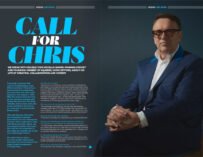

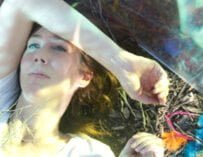



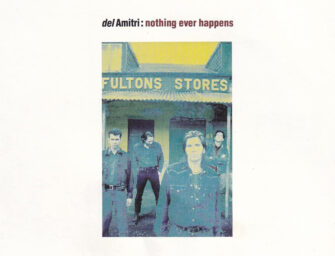

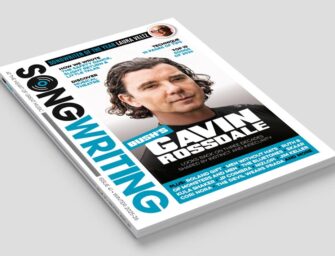
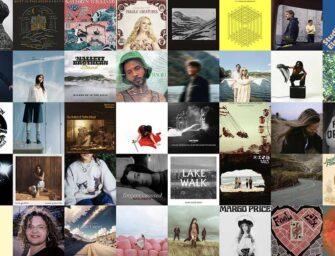






















Related Articles